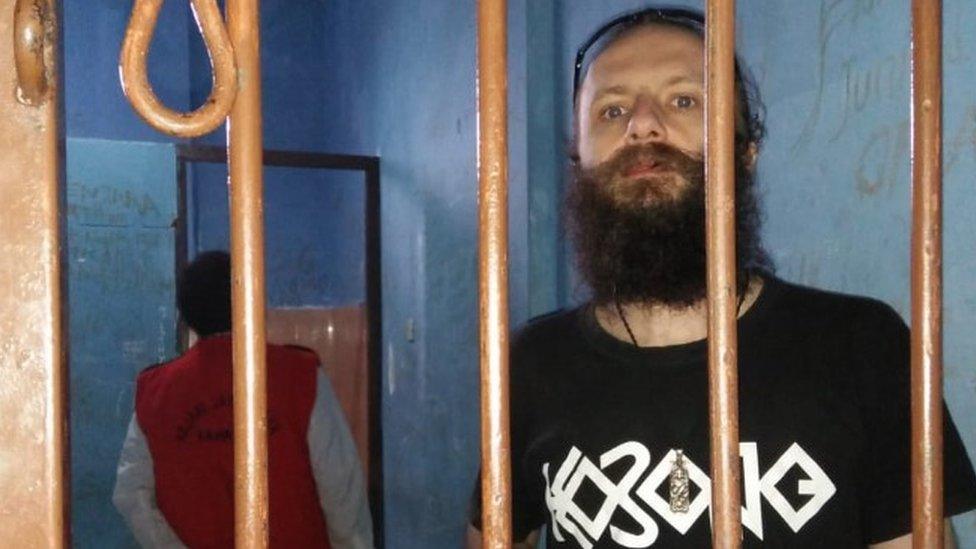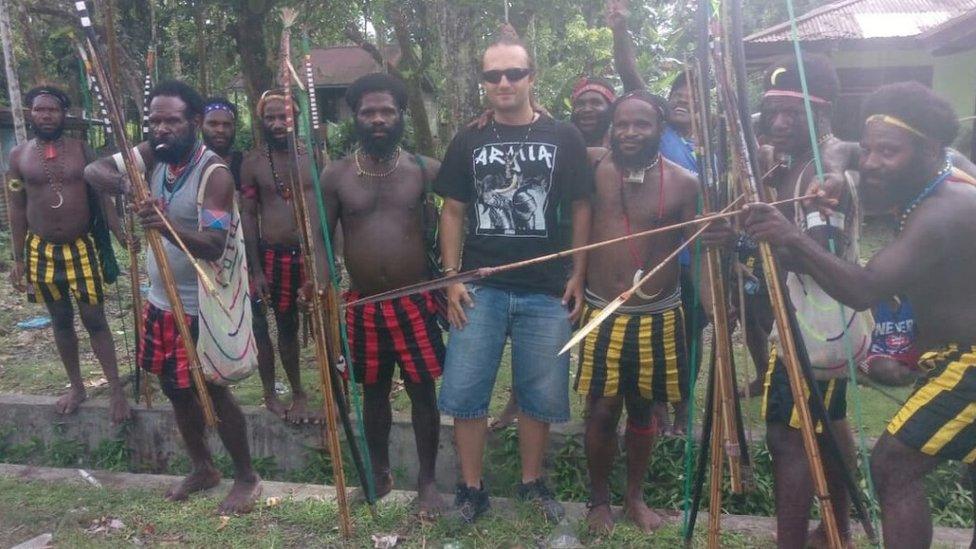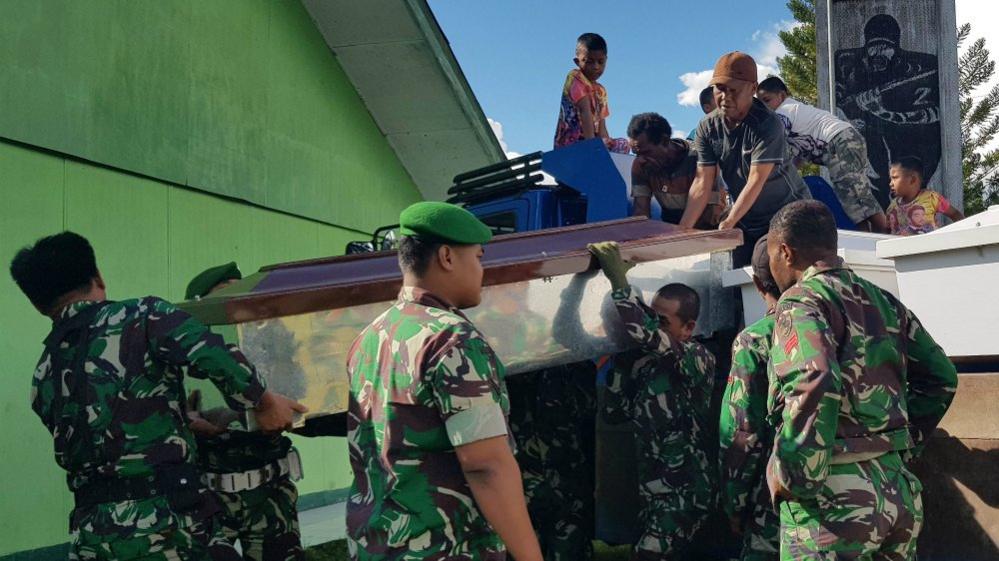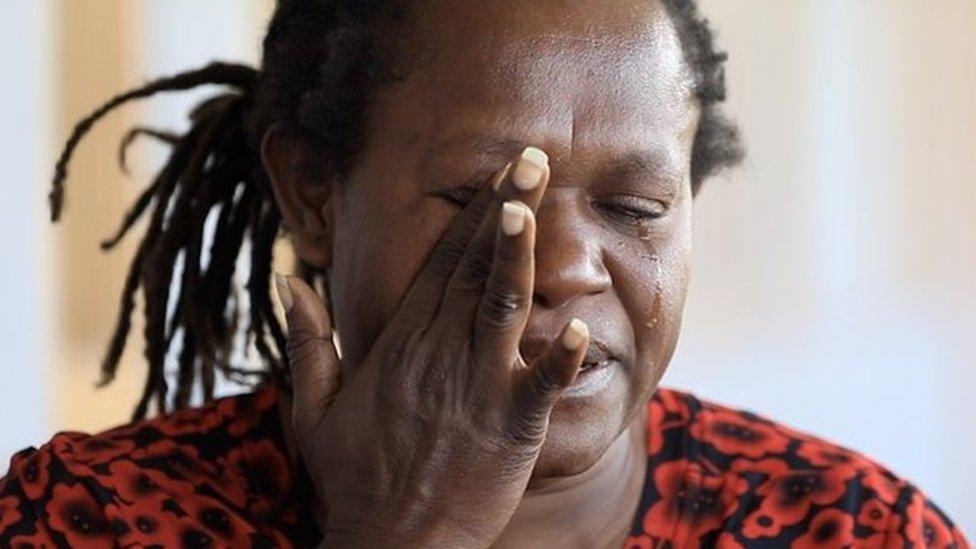Indonesia jails Polish tourist in Papua for treason
- Published

Skrzypski denied plotting against the Indonesian state
A Polish tourist has been jailed for five years in Indonesia after being convicted of plotting with rebels in the east of the country.
Jakub Skrzypski, 39, was arrested in Papua province last August and accused of treason after allegedly making contacts with separatists there.
Papuan student Simon Magal who met Skrzypski and contacted him on Facebook was also jailed for four years.
Skrzypski has denied plotting against the state and insists he is a tourist.
"I didn't have the opportunity to speak in my defence or to present any favourable evidence. I reject the trial as well as the verdict," he told the BBC in a text message.
Latifah Anum Siregar, Skrzypski's lawyer, said she would appeal against the decision.
"He is the first foreigner to be found guilty of treason in Indonesia and was found guilty alongside his friend," the lawyer told the BBC.
"He was a tourist and he was just visiting friends that he met over the internet and other people who he had been recommended to meet who turned out to be activists," she added.
Police initially accused Skrzypski of trying to set up an arms deal, but this was not raised at trial.
Why was Skrzypski arrested?
Skrzypski was travelling in Papua when he met members of the National Committee for West Papua. Their stated aim is to campaign in a non-violent way for a referendum on independence.
The group is not outlawed but it is illegal to fly the Papua independence flag or hold demonstrations that support a referendum.
After his arrest, police accused him of joining the West Papua National Liberation Army, one of four separatist organisations in the province.

Skrzypski insists he was simply a tourist in Papua
Papua police spokesperson Suryadi Diaz said that they had evidence he was involved in arms trading.
"He was involved in buying ammunition for them," he told BBC Indonesia.
Mr Skrzypski strongly denied those accusations.
"My trip wasn't a clandestine one. I was visiting friends. This conflict is irrelevant to me. I don't even know it very well."
The Indonesian military and police have long been wary of foreigners making contact with Papuans.
In February, the military detained then BBC Indonesian editor Rebecca Henschke for tweets she made while reporting from Papua. She was questioned for 17 hours before being released.
Andreas Harsono, Indonesian representative for Human Rights Watch, said: "The Skrzypski-Magal case is another example that the Indonesian government keeps blocking media access and deters independent reporting about Papua."
- Published4 December 2018

- Published21 December 2018
